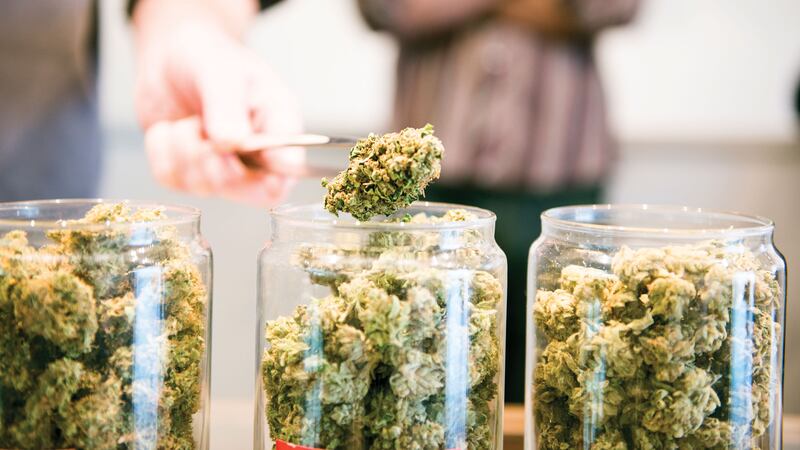Oregon Gov. Kate Brown and the state's top federal prosecutor, Billy Williams, signaled at a summit on marijuana policy Friday morning that they mostly agree on enforcement priorities despite the Trump Administration's decision to yank the official federal policy to allow states to determine their own cannabis laws unimpeded by federal rule.
President Donald Trump replaced the Obama administration's Cole Memo with new guidance that gives federal prosecutors more leeway to determine their own enforcement priorities, even in states that have legalized weed and have entrenched, regulated cannabis industries.
"The memorandum has produced some fear and anxiety in terms of what it means in terms of enforcement," Williams said in opening remarks to a room filled with law enforcement, local officials and U.S. attorneys from other jurisdictions. "I'm here to tell you, I don't share those fears."
Though he offered reassurances for rule-following Oregon businesses, Williams loaded his remarks with enough critiques of the public health implications of the industry and references to illegal dealings to leave room for possible changes in enforcement priorities under the new federal guidelines.
"We have an identifiable and formidable marijuana overproduction and diversion problem, and that's a fact," he says. "My priority is to work with law enforcement partners to do something about it. Make no mistake about it, we're going to do something about it."
Williams did, however, suggest that his office may have more important things to worry about than marijuana.
"We have a number of priorities that include violent crime reduction, financial crimes, [and] investigating civil rights violations," Williams says.
Today's summit will continue behind closed doors at the Mark O'Hatfield US Courthouse, but Williams hinted at the focus of the discussion.
He said the group would be going over data on the so-called overproduction problem that he says needs to be addressed to curb black market and interstate sales. He also pointed to contested statistics about the public health impacts of more longstanding legal markets in Colorado and Washington.
Federal prosecutors from 14 districts, including Washington, Colorado, California and Idaho, sat around a long table. Along with law enforcement representatives and lawmakers, they will discuss squaring state marijuana policies with federal rules and limiting impacts of Oregon's legal trade on neighboring states where marijuana remains illegal.
While Williams primed the room for a day filled with debate over how best to approach the issue of cannabis legalization, the governor sat next to him stoically.
Brown, who addressed the room immediately after Williams, says she's on board for enforcement efforts that aim to keep cannabis "out of the illegal market, and out of the hands of children."
She emphasized again her commitment to protect Oregon businesses and the 19,000 jobs that the legal marijuana industry has produced.
"We are here to work together to move forward, not backwards, when it comes to our economy," Brown says.
